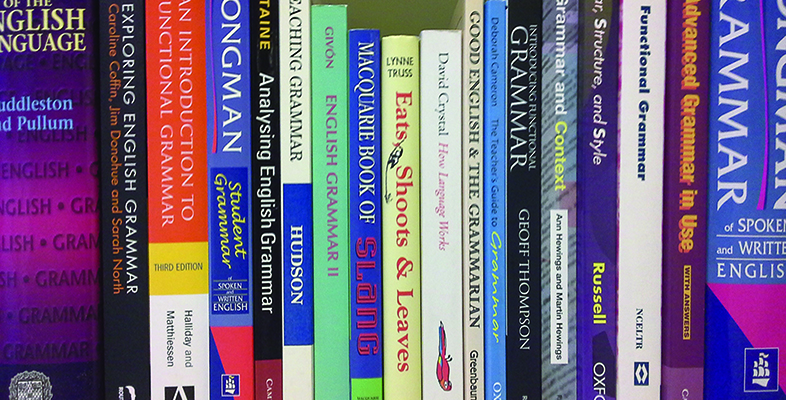1.1 Different reasons why grammar matters
Why is grammar important? The next activity asks you to reflect further on different reasons for the importance of grammar.
Activity 2: A matter of life and death?
Consider the following piece of light-hearted punctuation advice, which popped up in numerous places on the internet when the author of this course searched for ‘grammar’ (19 January 2016). What message does it seek to convey about the importance of grammar?
Discussion
On one hand this grammatical joke is intended to suggest that grammar can be important because it is crucial to meaning, and that the meanings we convey in words have real consequences. The comma signals that Grandpa is the addressee of the imperative Let’s eat and so includes him as one of the ‘eaters’. Without it, Grandpa becomes the object of the verb eat: he is to be eaten. On the other hand, there is a strong element of tongue-in-cheek here which acknowledges that grammar is in fact rarely – if ever – a matter of life and death. In practice, unless these words were used following a fatal plane crash in a remote location, it is highly unlikely that the words Let’s eat grandpa – however punctuated – would be misinterpreted as an exhortation to cannibalise an older member of the family. In any case, these words are far more likely to be spoken, when intonation would take the place of punctuation in helping to make sure that listeners do not misinterpret.
We can use this example to illustrate that not all grammatical changes affect meaning. For example, if we left out the apostrophe in Let’s, which indicates that the u in us has been left out, there would be no loss or distortion of meaning. In this case, incorrect grammar would only be a superficial problem: it might make us question the attention to detail of the text producer, or even cause the reader to make negative social judgements about the writer, for instance, but it would have no significant impact on the substance of the message.
Another example of a superficial problem of incorrect grammar is the well-known extraneous ‘grocer’s apostrophe’. Although references to potatoe’s or pineapple’s may irritate some customers, it does not usually lead to misunderstanding.
Many of the debates about the significance of grammar and the importance of studying it involve some confusion between these two issues – a concern with ‘meaning’ on one hand and a concern with rules and standards on the other (though sometimes, of course, both concerns may be relevant at once). In this course we will be chiefly interested in the significance of grammar in making meaning, rather than with the formal rules of English for their own sake, or with the social connotations of ‘good’ and ‘bad’ grammar.


